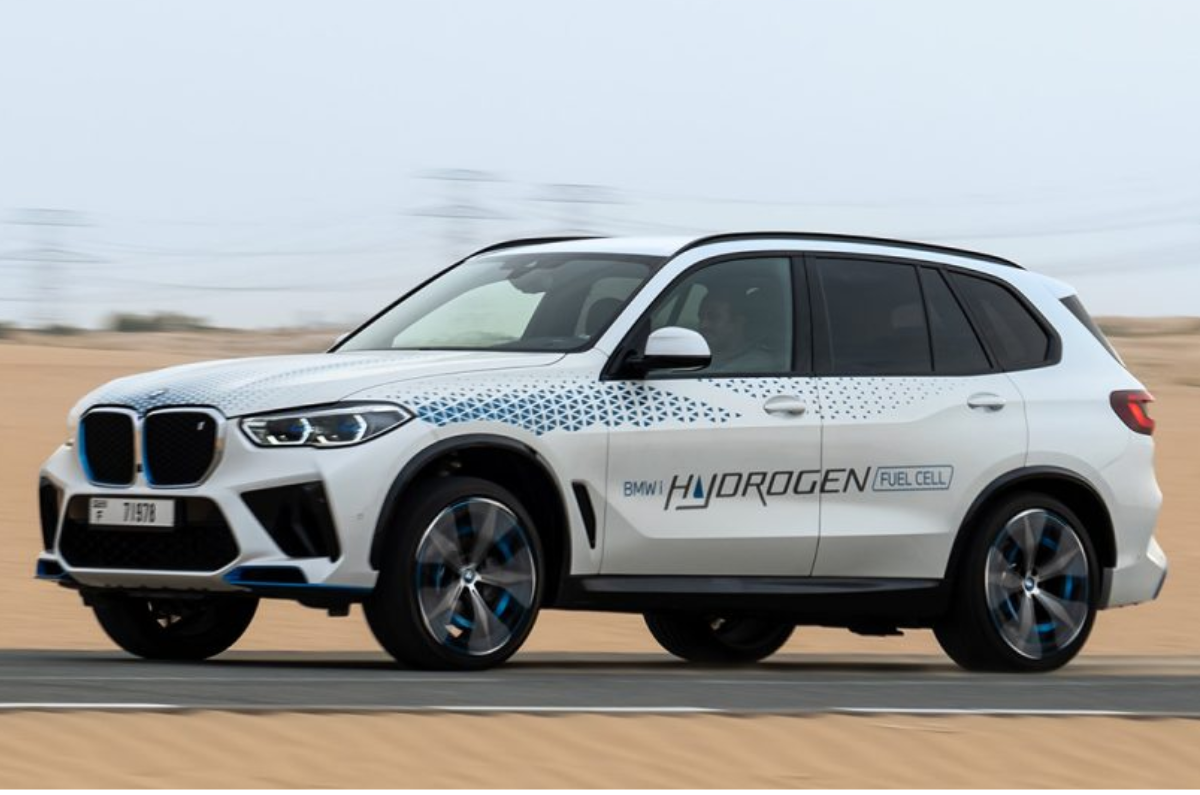Next-gen BMW X5 to get hydrogen powertrain

The electric BMW iX5 is set for an international launch in 2026, alongside the fifth-generation X5 with upgraded petrol, diesel and plug-in hybrid drivetrains. Additionally, a hydrogen-powered iX5 will join the line-up in 2028, using a powertrain co-developed with Toyota. This version will be followed by new fuel cell variants of existing models by the end of the decade. It’s too early to comment on its launch here, as the hydrogen infrastructure is undeveloped. For reference, BMW India’s current X5 line-up consists of petrol and diesel engine options only.
- The iX5 FCEV concept was first seen at the 2019 International Motor
Show in Germany - It has a WLTP range of 504km
- BMW is developing hydrogen technology with Toyota
The first pilot of BMW iX5 hydrogen cars, developed over four years, took place in 2023. BMW receives fuel cells from Toyota, with which it has been working on green technology since 2013. These cells have been hand-assembled and produced at a dedicated centre for hydrogen located in Munich, Germany.
How is a hydrogen vehicle different from an EV
While a hydrogen or fuel cell electric vehicle (FCEV) has an electric motor, just like an electric vehicle, the key difference lies in the energy storage system. Instead of electricity stored in the battery, hydrogen stored in tanks is converted into electricity to drive the car via the fuel cell. An FCEV, thus, benefits from quick refuelling at designated stations in 3-4 minutes (as per BMW), much like a combustion engine vehicle. Furthermore, hydrogen filling stations are cleaner than traditional petrol or diesel stations and don't leave any odour after refuelling.
BMW iX5 performance, range

The iX5 concept delivers up to 401hp and can accelerate from 0-100kph in under 6 seconds. The fuel cell alone is capable of supplying enough draw only for 172hp, with the rest coming from a small, high-performance lithium-ion battery under the boot. Interestingly, the electric SUV is fitted with a conventional turbocharger and intercooler to achieve adequate power from the fuel-cell stack. As for range, two hydrogen tanks have a combined capacity of 6kg, offering up to 504km (WLTP cycle) when full.
Also, see:
BMW’s iX5 Hydrogen Protection can withstand bomb, drone attacks
BMW to launch first hydrogen powered car in 2028 globally
BMW showcases iX5 Hydrogen at Munich motor show
from Autocar India https://ift.tt/QScoue7
Comments
Post a Comment